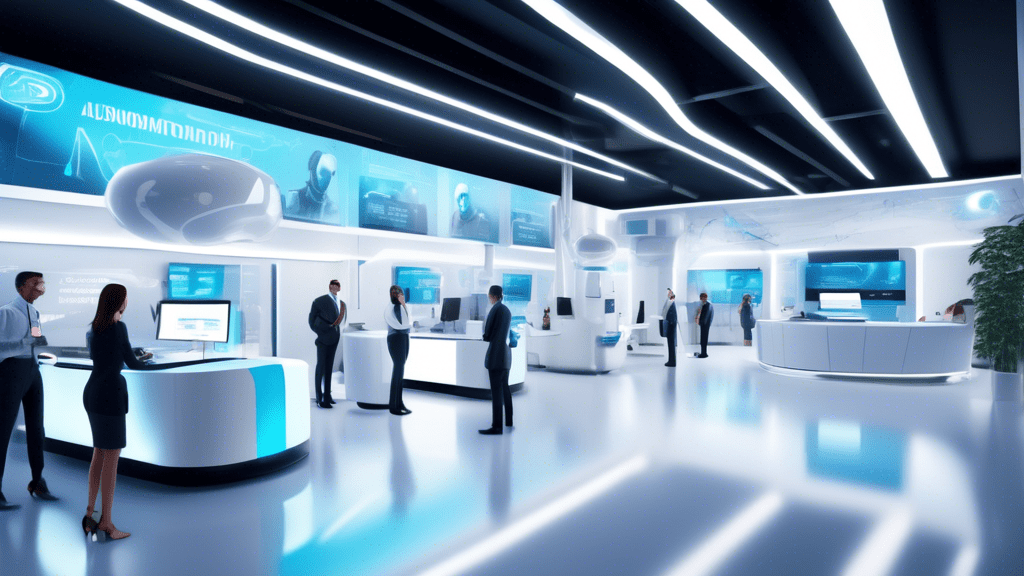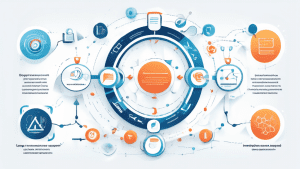In today’s fast-paced business environment, customer service excellence is more critical than ever. Companies strive to meet and exceed customer expectations to build loyalty, enhance brand reputation, and drive repeat business. One groundbreaking way organizations are achieving these goals is through the integration of automation into their customer service processes.
The Emergence of Automation in Customer Service
Automation in customer service began with simple tools like auto-responders and chatbots that handled basic, repetitive inquiries. These tools have evolved significantly, now leveraging advanced technologies like artificial intelligence (AI) and machine learning (ML). The automation spectrum today includes AI-powered chatbots, automated email responses, virtual assistants, and fully integrated customer relationship management (CRM) systems.
Benefits of Automating Customer Service
The advantages of automation in customer service are manifold:
1. Enhanced Efficiency
Automation significantly reduces response times by instantly addressing routine queries and issues. This frees up human agents to focus on more complex and value-added tasks, enhancing overall efficiency.
2. Cost Reduction
Automated systems can handle a high volume of requests without requiring the same level of resources as a human workforce, leading to substantial cost savings.
3. Consistency and Reliability
Automated customer service ensures consistent interaction quality, providing uniform responses that align with company policies and reducing the risk of human error.
4. 24/7 Availability
Unlike human agents, automated systems can operate around the clock, providing support to customers at any time of day, across different time zones.
Additionally, automated systems can be programmed to handle peak times more effectively, managing fluxes in customer inquiries with ease.
Types of Customer Service Automation
1. Chatbots and Virtual Assistants
Chatbots utilize natural language processing (NLP) to understand and respond to customer inquiries. They can address common questions, direct customers to relevant resources, and even process transactions. Advanced virtual assistants can handle more complex interactions, offering a near-human level of customer support.
2. Automated Email Responses
Pre-configured email automation rules can instantly respond to customer inquiries based on keywords and predetermined triggers. This ensures immediate acknowledgment and provides customers with useful information while their queries are directed to the appropriate human agents if necessary.
3. CRM Integration
Modern CRM systems integrate across various customer touchpoints and automate tasks like follow-ups, reminders, and personalized communication. This helps maintain a seamless and continuous customer experience.
Future Prospects of Automation in Customer Service
The future of customer service automation promises even more exciting developments:
1. Advanced Personalization
As AI and ML technologies continue to evolve, automated systems will offer more personalized customer experiences. Predictive analytics and customer data will allow for tailored interactions that anticipate needs and preferences.
2. Increased Use of Conversational AI
Conversational AI will become more sophisticated, enabling nuanced and context-aware interactions that mimic human conversation more closely than ever before.
3. Integration of IoT and Voice Assistants
The Internet of Things (IoT) and voice-activated assistants like Amazon’s Alexa and Google Assistant will further integrate into customer service frameworks, allowing for seamless omnichannel support.
Challenges and Considerations
While the benefits of automation are clear, there are also challenges to consider:
1. Maintaining the Human Touch
Over-reliance on automation can lead to a loss of the personal touch that customers value. It’s essential to strike a balance, ensuring that human agents are available for more complex and emotionally sensitive interactions.
2. Data Security and Privacy
Automated systems collect and process significant amounts of customer data. Ensuring the security and privacy of this data is paramount, requiring robust encryption and compliance with regulations such as GDPR or CCPA.
3. Implementation and Maintenance Costs
Setting up and maintaining automated systems involves initial investment and ongoing maintenance. Companies must weigh these costs against the projected savings and benefits to ensure a positive return on investment.
In conclusion, automation is revolutionizing customer service by enhancing efficiency, improving response times, reducing costs, and providing consistent and reliable service. As technology continues to evolve, the potential for further advancements is immense, promising even more sophisticated and personalized customer experiences. However, businesses must navigate challenges like maintaining the human touch and ensuring data security to fully reap the benefits.
For businesses looking to automate their customer service operations, partnering with experts can offer significant advantages. Zing Business Systems provides done-for-you solutions for Google Business Profiles or provides ideas and solutions for the DIY business owner.





No comments! Be the first commenter?